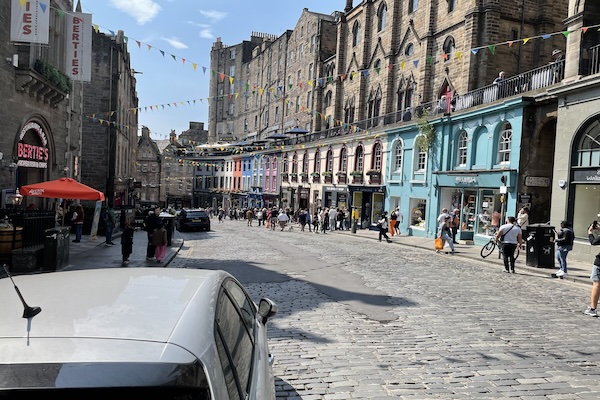UKHospitality Scotland warns a planned tourist tax in Edinburgh could reach unsustainable levels.
- Edinburgh’s council supports a tourist levy, aiming for £50 million in annual revenue by 2029.
- A consultation will gather views on the initial 5% per night charge, proposing potential adjustments.
- The levy will fund city improvements, affecting accommodations but excluding campsites, potentially involving cruise ships later.
- Officials and industry leaders express differing views on the levy’s potential impact.
UKHospitality Scotland has voiced concerns over Edinburgh’s proposed tourist tax, suggesting it could rise to an unsustainable level. The planned tax follows the City Council’s approval of an overnight visitor levy, which aims to generate up to £50 million annually by the fiscal year 2028-29. This proposal comes after over five years of campaigning by the City of Edinburgh Council for a levy on overnight stays.
A 12-week consultation period is set to begin this autumn, during which residents will be asked their opinions on the initial proposal of a 5% charge per night, with the possibility of it being higher or lower. The decision aims to be finalised by January 2025, allowing an 18-month implementation process before the tax’s introduction in July 2026.
The levy will apply to paid accommodations such as hotels, short-term lets, hostels, and bed and breakfasts, while campsites will remain exempt. Additionally, a future phase might consider including cruise ships, expanding the scope of the tax as reported by the BBC.
Revenue collected from the tax will be allocated directly to initiatives that benefit both the local populace and visitors. This includes investments in affordable housing, infrastructure enhancements, and bolstering destination marketing. These funds will also support major events and festivals, further enriching the city’s cultural fabric.
City Council Leader Cammy Day hailed the levy as a once-in-a-lifetime chance for Edinburgh, highlighting its potential to generate over £6 million during peak festival months like August, given the current growth trajectory of these events. “We can’t take Edinburgh’s cultural assets and reputation as a leading tourist destination for granted,” Day stated, emphasising the importance of sustaining the tourism sector through innovative financial measures.
While the City Council supports the levy, UKHospitality Scotland executive director Leon Thompson has cautioned against imposing a higher rate than the proposed 5%. He stressed that the levy would increase costs for visitors and businesses, urging careful consideration to avoid harming Edinburgh’s reputation as a premier destination. Thompson acknowledged potential business challenges in implementing the levy but noted the council’s support for a mechanism allowing businesses to recuperate some costs.
Conversely, Neil Ellis, chair of the Edinburgh Hotels Association, expressed optimism about the levy. He valued its role in enhancing the visitor experience and reinforcing Edinburgh’s status as a must-visit city globally. Ellis described the levy as a promising initiative that could elevate Edinburgh’s standing on the international stage.
The introduction of a visitor levy in Edinburgh presents a pivotal opportunity for the city’s growth, though opinions vary on its implementation and impact.

